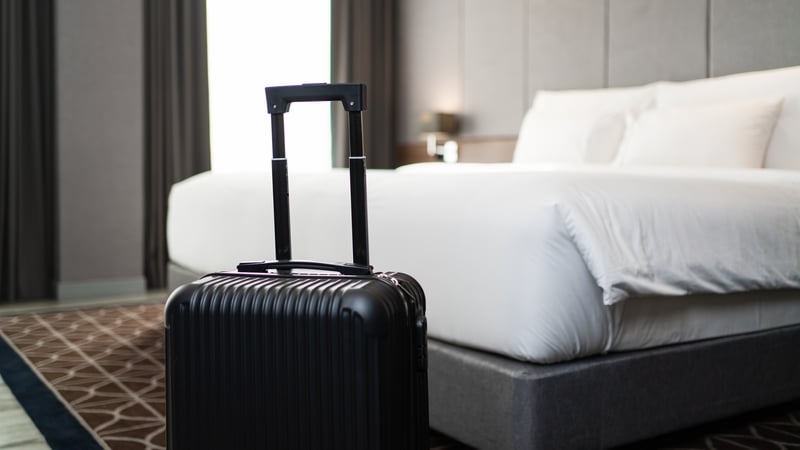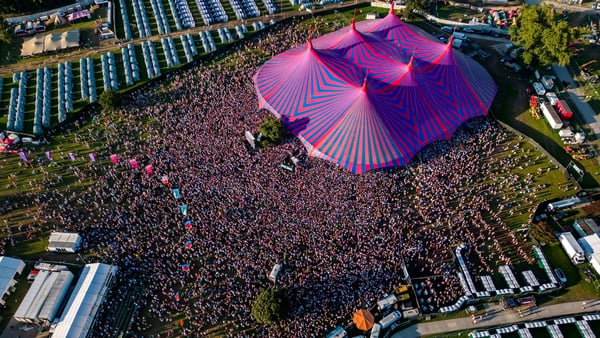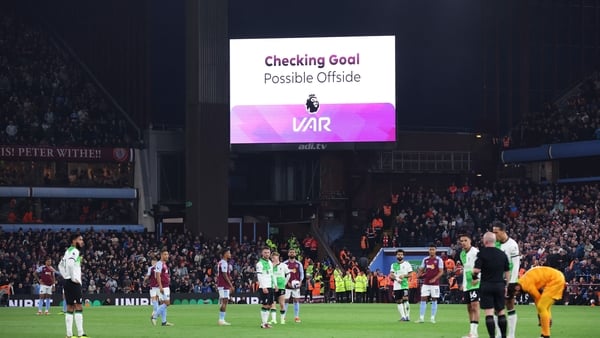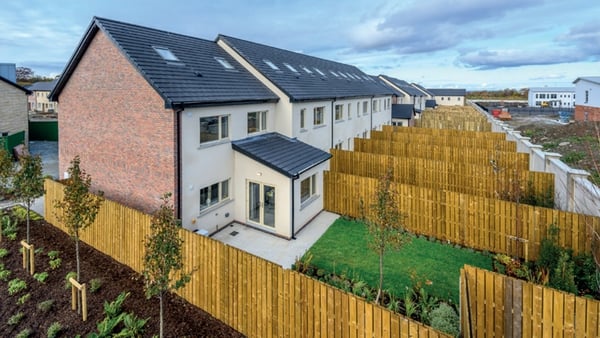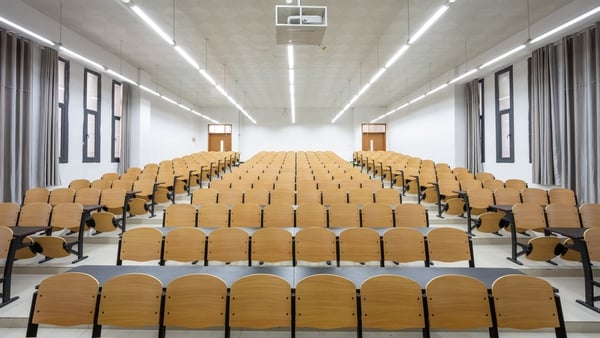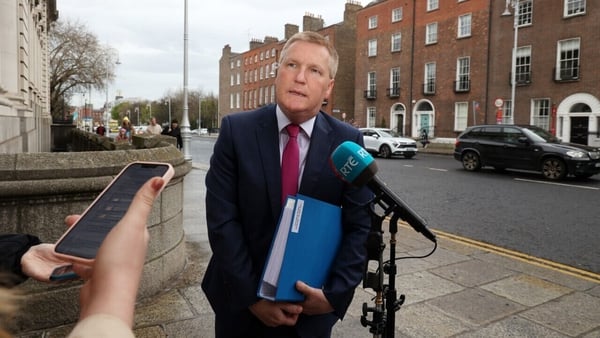Analysis: there's a logic behind price hikes when big artists come to town, but it should be treated with a degree of scepticism
As a music fan, I spent most of my adolescence looking forward to concerts. Nowadays I spend more time dreading the cost of them. The price of concerts has increased recently because there's not as much money in selling music so performers charge more for their live gigs. Aside from the cost of entry, the price of accommodation in major cities during concerts also makes attending live music events very expensive.
Price hikes are a common occurrence when big artists come to town. One Dublin hotel has even raised the costs of its rooms from €359 to €999 a night during the Taylor Swift concerts next year. Price hikes like this in the capital are a reoccurring source of annoyance for anyone in Ireland who wants to attend a concert but has the cheek to live outside of Dublin.
The Taoiseach recently spoke out to warn hotels in the capital about price gouging during 'very popular weekends', but added that they also have their own story to tell. Is there a legitimate reason for these price hikes? As annoying as it can be for consumers, there is unfortunately a logic behind these price hikes.
We need your consent to load this rte-player contentWe use rte-player to manage extra content that can set cookies on your device and collect data about your activity. Please review their details and accept them to load the content.Manage Preferences
From RTÉ Radio 1's Saturday with Colm Ó Mongáin, is the Taylor Swift inflation effect hitting out hotel sector?
Hotels provide a standard rate for their services all year round which they deem efficient. Meaning the price is low enough that some consumers will pay it, but high enough that they will make a profit from it. On weeks where there is a major concert, there is a sudden (and temporary) increase in the demand for accommodation. Usually, a firm could capitalise on this by increasing their production to supply more of their product, however, this isn't really possible for a firm in the accommodation sector.
Unlike a pub which can simply order in more beer in anticipation of a busy weekend, a hotel can’t build more rooms for the sake of just two nights to keep their prices down. So price increases during concerts can, to a certain extent, be justified. After all, we see price increases in all sectors of the economy and the Consumer Price Index has increased by 5.8% from July 2022 to July 2023.
But, are the price increases in accommodation during concerts the same as general price increases in consumer goods as a result of inflation? And are the size of the price increases justified? I’m not so sure.
We need your consent to load this rte-player contentWe use rte-player to manage extra content that can set cookies on your device and collect data about your activity. Please review their details and accept them to load the content.Manage Preferences
From RTÉ Radio 1's News At One, Public Accounts hears Dublin hotel prices 'embarrassing'
Inflation generally occurs due to periods of time where spending consistently outweighs production, and as a result, there is more money relative to goods and services so money becomes less valuable. Alternatively, the prices of goods can increase due to a shift in industry dynamics.
For example, the image below demonstrates that the price of concert tickets increased globally as the proportion of revenue generated from physical music sales decreased. Here, there was a shift in the dynamics of the music industry whereby there was less money to be made from selling music, so the producers of music made up for this by charging more money for their live performances.
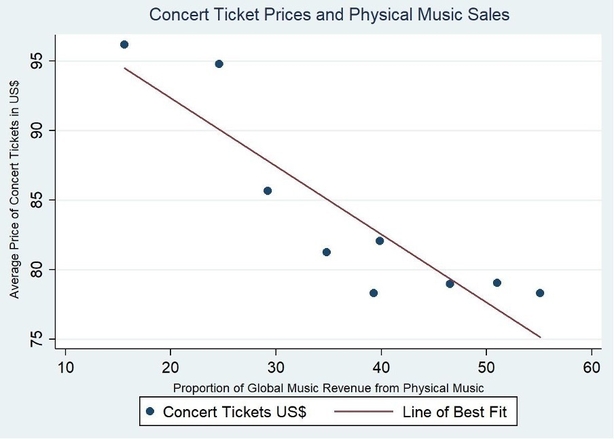
This isn’t what’s happening with the price of accommodation during concerts. There’s no long standing trend or shift in the industry which has led to these price increases. There’s just a temporary spike in demand for accommodation relative to supply. It is true that the additional demand for accommodation during concerts could potentially increase costs for hotels if they need to employ extra staff for the evening, but these additional costs are more than likely offset by the extra revenue a hotel will generate due to additional custom anyway.
One could be very sceptical about hotels hiking their prices by over 100% simply to 'cope with extra demand’. It is far more likely that such extreme price increases are the result of opportunistic business owners.
The views expressed here are those of the author and do not represent or reflect the views of RTÉ
